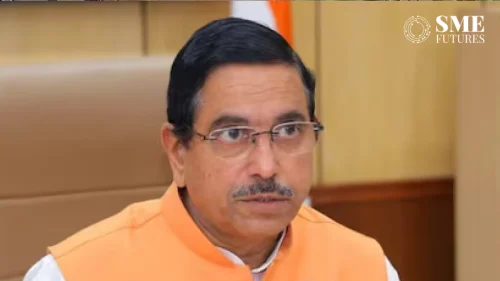Indian food industry should focus on research and development and quality certification to ensure that its products do not get rejected in the overseas markets, food processing secretary Jagdish Prasad Meena said. He also expressed concern over export consignments of many products including basmati rice facing problems.
“We are very poor in certification and that is why our products are being rejected. Basmati rice is facing a serious problem of pesticide residuals for the last two years and many of the consignments have been rejected. “Now, many of the products including honey have been held up in the US, and Europe is also following suit,” Meena said.
This is because the industry is not paying proper attention to quality, he said addressing a conference on food processing organised by educational institute NIFTEM.
India’s export of food products will be smooth and also expand if the industry focuses on quality certifications based on global standards, Meena said. “In food, safety and quality are of utmost importance,” he said while urging the industry to come out with new products that are globally competitive.
The secretary said research and development and quality certification are weakest links in the food processing sector and emphasised on backward linkages to ensure the quality of raw materials.
Addressing the function, food processing minister Harsimrat Kaur Badal said: “Food Technology Entrepreneurship and Management (NIFTEM) is a one of its kind institute and has the potential to become the Harvard of food processing technology and management sector. A university which despite being nascent, has already been ranked 50th out of 3,007 universities in India”.
Stating that Indians are becoming increasingly aware of healthy food habits, she asked NIFTEM to explore how it can come up with Brand NIFTEM’ which is healthier, fresher and cheaper. Badal asked the food industry, especially new entrepreneurs, to utilise the incubation centre and food testing lab at NIFTEM.
“I foresee a lot of potential for the new facilities created at NIFTEM. The food testing lab should become a nodal lab for Food Safety Standards Authority of India and also both domestic and international companies to rely on for testing of their products,” she said.
NIFTEM should open up its incubation centre to new entrepreneurs for trying out new things, Badal said, adding that at least two outlets should be opened at NIFTEM and the ministry premises to market new healthy products.
She invited the industry to partner NIFTEM and evolve as a guide to help the ministry form policies for the food processing sector. The National Institute of NIFTEM, at Sonepat in Haryana, is an institution under the aegis of Ministry of Food Processing Industries.
It is a sector-specific institution to cater to various stakeholders such as entrepreneurs, food processing industry, exporters, policy makers, government and existing institutions.
The 6th meeting of NIFTEM Industry Forum was aimed at strengthening industry-NIFTEM collaboration.









